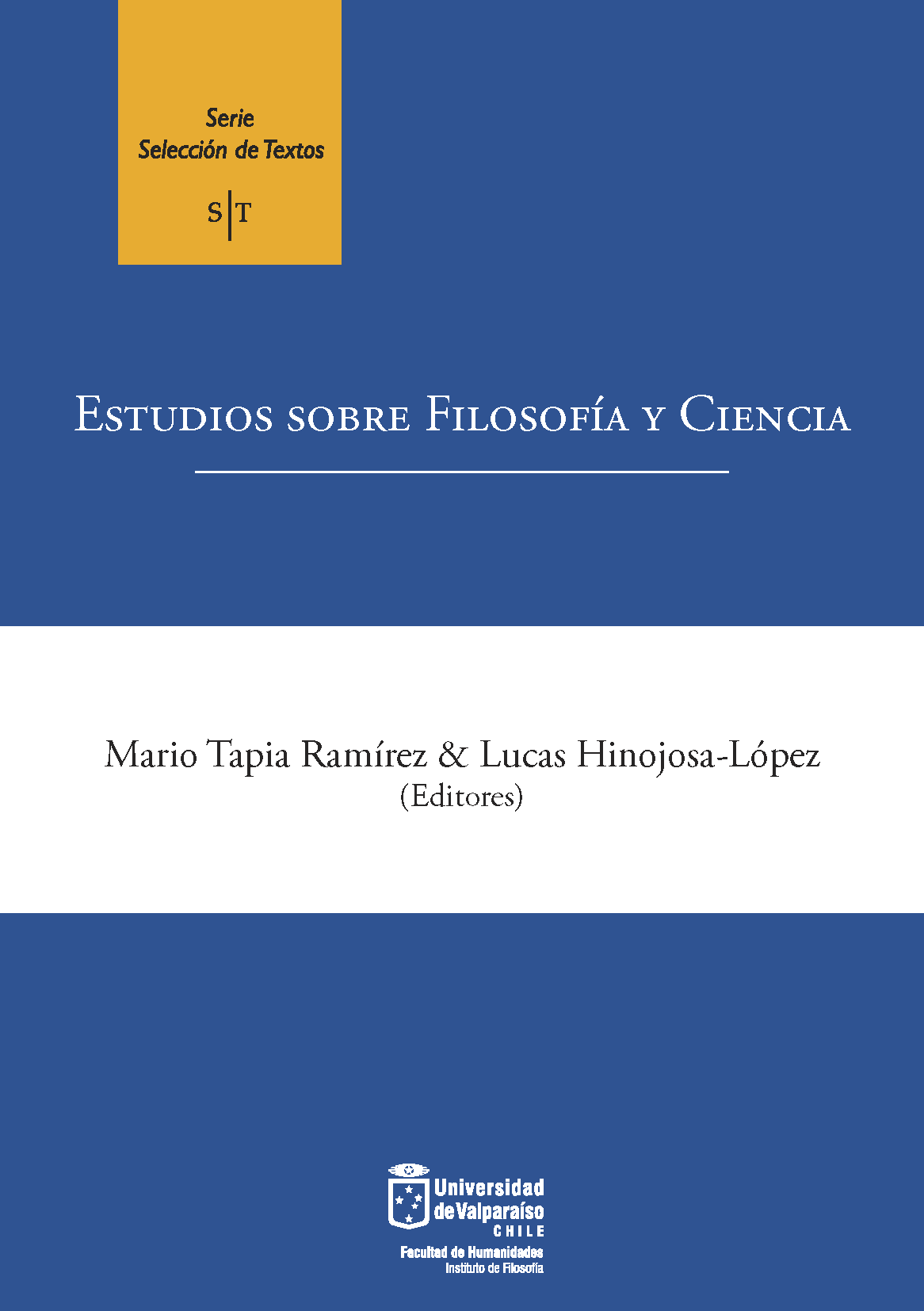Reflexiones desde un enfoque biosemiótico peirceano sobre algunos procesos de mimetismo biológico.
DOI:
https://doi.org/10.22370/sst.2025.10.4905Keywords:
Pragmatism, icon, communication, information, mimicryAbstract
Biosemiotics is an interdisciplinary field where sciences and humanities converge in a complementary way. One of the most fertile areas has been the relationship between biological sciences and Peircean semiotics since the latter proposes a novel perspective on non-human communication and the role of the sign as a relational property of the processes of semiosis present in nature. The late proposal of the philosopher C. S. Peirce, especially his division into di↵erent interpretants, together with some elements of his epistemology such as his pragmatic maxim and his categorial system, shape the understanding of how the practical consequences of some Inter-species phenomena are constituted as changes in habits of action with implications in the behaviors or actions of various forms of animal life. In this way, some cases of biological mimicry are reviewed from the Peircean semiotic triad, highlighting the iconicity and practical implications that some animals and insects perform.
Downloads
References
Anderson, M., Deely, J., Krampen, M., Ransdell, J., Sebeok, T., & von Uexk¨ull, T. (1984). A semiotic perspective on the sciences: Steps toward a new paradigm. Semiotica, 52(1-2).
Ariza-Mateos, A., & G´omez, J. (2017). Viral tRNA Mimicry from a Biocommunicative Perspective. Front. Microbiol, 8 , pp. 1-14. doi:10.3389/fmicb.2017.02395
Atkin, A. (2005). Peirce On The Index and Indexical Reference. Transactions of The Charles S. Peirce Society, 41(1), pp. 161–188.
Atkin, A. (2022). Peirce’s Theory of Signs. The Stanford Encyclopedia of Philosophy, (Spring 2023 Edition), Edward N. Zalta & Uri Nodelman (eds.) https://plato.stanford.edu/entries/peirce-semiotics/
Barbieri, M. (2009). A short history of biosemiotics. Biosemiotics, 2, pp. 221-245.
Barbieri, M. (2014). From Biosemiotics to Code Biology. Biological Theory, 9(2), pp. 239–249. doi:10.1007/s13752-013-0155-6
Barrena, S., & Nubiola, J. (2013). Charles S. Peirce (1839- 1814): Un pensador para el siglo XXI. Editorial Eunsa.
Deely, J. (2001). Umwelt. Semiotica, 134, pp. 125-135. doi:10.1515/semi.2001.019
Dennett, D. (2024). De las bacterias a Bach. La evolución de la mente. Ediciones de Pasado y Presente.
Favreau, D. (2007). Fundaments of Animal Knowing: Establishing Relations Between Sensations, Actions, and the World in Guenther
Witzany (Ed.) Biosemiotics in Transdisciplinary Contexts (pp. 61-69). Umweb Press.
Gianoli, E., & Carrasco-Urra, F. (2014). Leaf Mimicry in a Climbing Plant Protects against Herbivory. Current Biology, 24(9), pp. 984–987. doi:10.1016/j.cub.2014.03.010
Gilbert, S., Sapp, J., & Taubert, A. (2012). A symbiotic view of life: we have never been individuals. The quarterly review of biology, 87(4), pp. 325–341.
Godfrey-Smith (2014). Philosophy of Biology. Princeton University Press.
Houser, N. (2014). The Intelligible Universe in V. Romanini & E. Fernández (Ed.), Peirce and Biosemiotics A Guess at the Riddle of Life (pp.14-45). Springer
Joron, M., Frezal, L., Jones, R., et al. (2011). Chromosomal rearrangements maintain a polymorphic supergene controlling butterfly mimicry. Nature, 477, pp. 203–206. https://doi.org/10.1038/nature10341
Kull, K., Deacon, T., Emmeche, C., et al. (2009). Theses on Biosemiotics: Prolegomena to a Theoretical Biology. Biology Theory, 4, pp. 167–173. https://doi.org/10.1162/biot.2009.4.2.167
Kull, K., Deacon, T., Emmeche, C., Hoffmeyer, J., & Stjernfelt, F. (2011). Theses on Biosemiotics: Prolegomena to a Theoretical Biology in K. Kull & C. Emmeche (Eds.), Towards a semiotic Biology. Life is the Action of Signs (pp. 25-41). Imperial College Press.
Lalor, B. J. (1997). The classification of Peirce’s interpretants. Semiotica, 114(1-2). doi:10.1515/semi.1997.114.1-2.31
Lanteri, A., & Del R´ıo, M. G. (2014). La imitaci´on en la naturaleza. Revista Ciencia Hoy, 23(138), pp. 56-60.
Maran, T. (2017). Mimicry and Meaning: Structure and Semiotics of Biological Mimicry. Springer.
Merrell, F. (1997). Peirce, Signs, and Meaning. University of Toronto Press.
Morris, C. (1971). Writings on the General Theory of Signs. Mouton & Co. N.V. Publishers The Hague.
Pannell, J. R., & Farmer, E. E. (2016). Mimicry in plants. Current Biology, 26(17), pp. 784–785. doi:10.1016/j.cub.2016.04.005
Peirce, C. (1992-98). The Essential Peirce. Selected Philosophical Writings, vols. 1-2, N. Houser et al. (eds.). Indiana University. EP
Peirce, C. (1931–1958). Collected Papers of C.S. Peirce, 8 vols., ed. By C. Hartshorne, P. Weiss (vols. 1-6) and A. Burks (vols. 7-8). Harvard University Press. CP
Petrilli, S. (2023). Significs, Pragmatism, and Mother-Sense: Welby’s Conversations with Peirce and Others. European Journal of Pragmatism and American Philosophy, XV(1) , pp. 1-6. doi: https://doi.org/10.4000/ejpap.3221
Petrilli, S., & Ponzio, A. (2005). Semiotics Unbounded: Interpretive Routes through the Open Network of Signs. University of Toronto Press. doi: 10.3138/9781442657113
Romanini, V. (2014). Semeiosis as a Living Process in V. Romanini & E. Fern´andez (Eds.), Peirce and Biosemiotics A Guess at the Riddle of Life (pp. 215-239). Springer
Saussure, F. (2011). Course of General Linguistics. Columbia University Press.
Sebeok, T. (1996). Signos: una Introducción a la Semiótica. Paidós.
Short, T. L. (2007). Peirce’s Theory of Signs. Cambridge UP.
Thomas, J. A. (1995). The ecology and conservation of Maculinea arion and other European species of large blue butterfly in Pullin, A.S. (Eds.), Ecology and Conservation of Butterflies (pp. 180-197). Springer. https:/doi.org/10.1007/978-94-011-1282-6_13
Uexküll, J. V. (2010). A foray into the worlds of animals and humans. University of Minnesota Press.
Downloads
Published
How to Cite
Issue
Section
License

This work is licensed under a Creative Commons Attribution-NonCommercial-NoDerivatives 4.0 International License.

